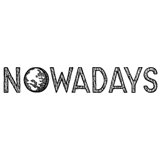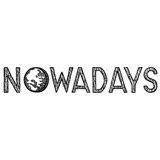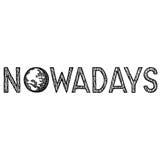
Cardea: Psychedelics and Psychoanalysis
Nowadays
∙
New York
Wednesday, June 21 at 8 pm EDT
Serves Food
Outdoor Patio
Lounge
Concert Venue
Bar
Open Format
Wednesday, June 21 at 8 pm EDT
Serves Food
Outdoor Patio
Lounge
Concert Venue
Bar
Open Format
Entry Options
No Options Available
Browse More Events
Tap here to find more events in New York
Details
Description
Cardea is a new organization founded by thought leaders in both the psychedelic space and psychological recovery, composed of psychotherapists and ceremonialists, vibrational composers, artists and experts in personal growth. Their aim is to help folks seeking recovery from deep and entrenched psychological anguish and from behaviors that are out of control, as well as those who want a more awakened life and expanded sense of existence. Cardea has recently opened a space for ketamine care in NYC, and hosts psilocybin retreats in Jamaica. They also partner with OnPoint NYC, a Harlem-based community organization, to provide free holistic psychedelic care for people experiencing homelessness, active drug users, sex workers and the formerly incarcerated.
For this month’s edition of Cardea’s residency at Nowadays, Nathan Gorelick, will be joining us for a talk on psychoanalysis and psychedelics. Nathan Gorelick is Term Assistant Professor of English at Barnard College. Previously, he was Associate Professor of English at Utah Valley University, and he holds a Ph.D. in Comparative Literature from the State University of New York at Buffalo. He has published widely on the intersections of literature, philosophy, and psychoanalysis. His first book, The Unwritten Enlightenment, is forthcoming from Northwestern University Press. He is currently researching the history of the relation between psychedelics and the Freudian field, as well as how this relation may be reinvented today.
In Gorelick’s words: “Freud’s legendary (mis)adventures with cocaine have drawn plenty of attention, but far less has been said about the fraught relation between the science he invented and the clinical history of psychedelics. In fact, psychoanalysis and psychedelics grew up together. At times they were even friends. Now that psychedelics are (again) going mainstream, we should return to this history and consider: what can the theory, clinical practice, and ethics of psychoanalysis learn, or relearn, from the psychedelic experience? And what can the science and big business of altered states of consciousness learn from the unconscious?”
Violence, non-consensual touching, racist, homophobic, transphobic, sexist, ageist or other discriminatory language, and leering are not allowed within our walls or in our back yard. If someone says or does anything to make you feel uncomfortable while you’re here, let us know.

